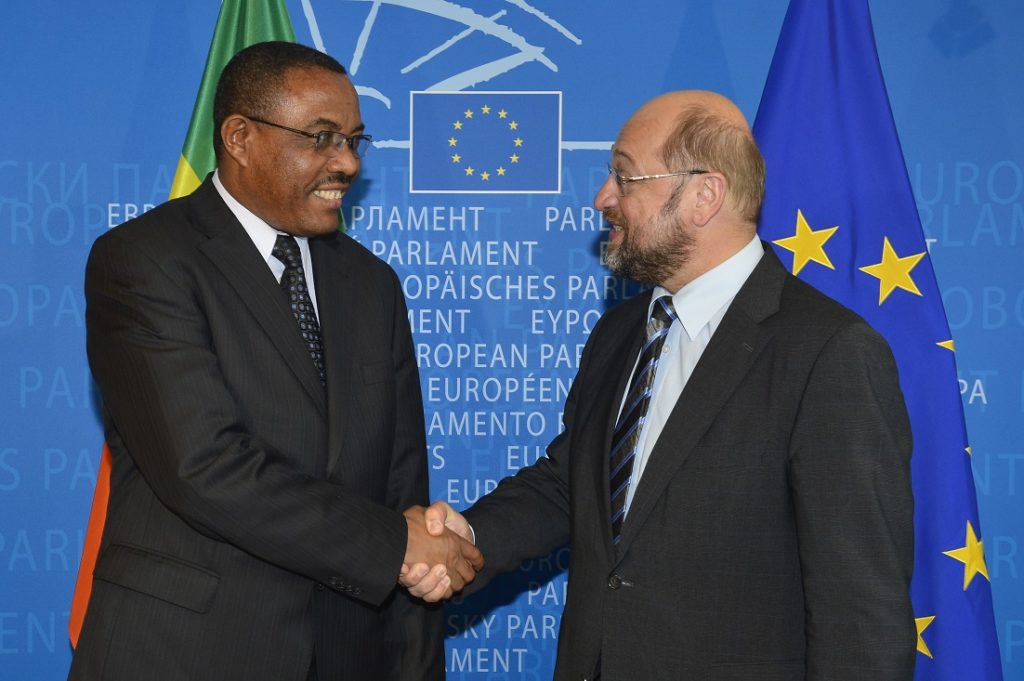European Union has decided to increase its assistance to Ethiopia considering the proper utilization of funds, the EU Delegation to Ethiopia said. In an exclusive interview with ENA, Head of the Delegation Ambassador Chantal Hebberecht said the country has been spending the finance secured from the EU for the intended purposes. She said the EU has been monitoring the utilization of funds by Ethiopia and proved that the funds have been spent for the intended purposes.
EU has been supporting projects in natural conservation, agriculture, education and health has been spent properly. In addition to the proper utilization of funds, the nation’s effort to alleviate poverty is another reason for EU to increase its support.
The EU and the 20 member states present in Addis Ababa are one of the biggest donors in this country, she said. “The total of the financial allocation to support the development of this country is more or less one billion dollars per year”, and represents 40 percent of the public development aid in Ethiopia. “We have ongoing projects for a total of 400 million Euros and we are preparing a new financial allocation of 800 million Euros for the next five years, because we are starting a new cycle cooperation with this country under the 11th EDF” she added.
She noted that Ethiopia has been undertaking successful activities regarding poverty alleviation, reducing child and maternal deaths; realize universal access to primary education, and control malaria, HIV/AIDS and other sexually transmitted diseases. Allocating 70 percent of its budget to education, infrastructure, health institutions and poverty alleviation projects, helped Ethiopia achieve the MDGs, she added.
Germany, France, UK and Italy are among the leading countries in extending development assistance to Ethiopia.
Background of EU-Ethiopia relations
The EU-Ethiopia development partnership formally started when Ethiopia signed the Lomé Convention in 1975, and the European Commission opened its Delegation’s office in Addis Ababa the same year. Since then, the Commission has played a significant role in supporting Ethiopia’s economic development both financially and technically. According to H. E. Teshome Toga, Ethiopian Ambassador to the EU, Benelux and Baltic states, the Ethio-EU relationship is based on mutual benefits and on strategic principles. Besides its aid, the EU is also the destination for 30 percent of Ethiopia’s coffee, leather, horticultural and floricultural exports, while more than 300 European investors are doing business in Ethiopia, totaling more than 60 billion of dollars of foreign investments. Moreover, the European Investment Bank also offers significant lines of credit to Ethiopia for telecommunications, aviation and energy projects. Among this, the Gilgel Gibe III dam is notable (1,870MW capacity), and is scheduled to begin generating power this year.

